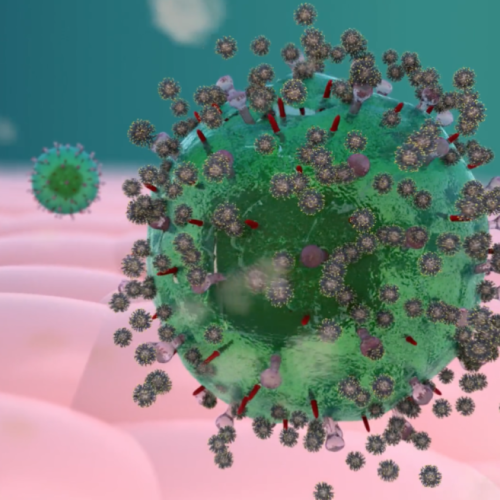By Michael Irving Viruses are surprisingly difficult to kill – most of the drugs and chemicals that do the job are also harmful to human health. But now, scientists have developed a new virucidal substance derived from sugar, making it deadly to a wide range of viruses but safe for us. The vast majority of...
Tag: <span>viruses</span>
Common foods alter gut bacteria by influencing viruses
A group of researchers has brought the idea of food as a medicine one step closer. They have identified certain common foodstuffs that alter our microbiome. Illustration of phage viruses attacking a bacterium. In science today, food and gut bacteria are two topics that are guaranteed to fuel interest and debate. Both, of course, are...
Salad bars and water systems are easy targets for bioterrorists—and America’s monitoring system is woefully inadequate
by Ana Santos Rutschman, The Conversation In October 2019, a House Homeland Security Committee subcommittee held a hearing entitled “Defending the Homeland from Bioterrorism: Are We Prepared?” The answer was a resounding no. The experts testified that our biodefense system has been vulnerable and outdated for well over a decade. This might provoke worries about...
Common cold stopped by experimental approach
By James Gallagher | Health and science correspondent, BBC News Scientists think they have found a way to stop the common cold and closely related viruses which can cause paralysis. Instead of trying to attack them directly, the researchers targeted an essential protein inside our cells which the viruses need to replicate. The approach gave “complete protection” in experiments on...
Lines blurring between human herpes simplex viruses
by University of Washington The line between the human herpes simplex viruses—HSV-1 and HSV-2—is blurrier than previously thought, according to a new study published this week in the Journal of Infectious Diseases. Researchers found that HSV-1 and HSV-2 are mixing together to result in several new, different recombinant versions of herpes. “The main implication is that HSV-1 and HSV-2 are continuing to recombine,” said...
Viruses show new promise in treating cancer
Viruses have shown renewed promise in the treatment of cancer after new research has shown they retain their cancer-killing ability even when injected into the bloodstream. This electron microscope image shows white blood cells containing virus particles (shown in red circles). White blood cells can reactivate the virus as it travels to the tumor site, allowing it...
New Study Shows Antibiotics Could Be Replaced With Viruses
Antibiotics have changed the world since their invention in the early 20th century, but their usefulness might be coming to an end. Bacteria are evolving resistances to most antibiotics, making these increasingly useless for fighting diseases. A new study gives hope that scientists can find an effective replacement for antibiotics: viruses. We often think of viruses as deadly...
Vaccines for three deadly viruses fast-tracked
Scientists have named three relatively little-known diseases they think could cause the next global health emergency. A coalition of governments and charities has committed $460m to speed up vaccine development for Mers, Lassa fever and Nipah virus. They are asking funders at the World Economic Forum Davos for another $500m. The Coalition for Epidemic Preparedness...

